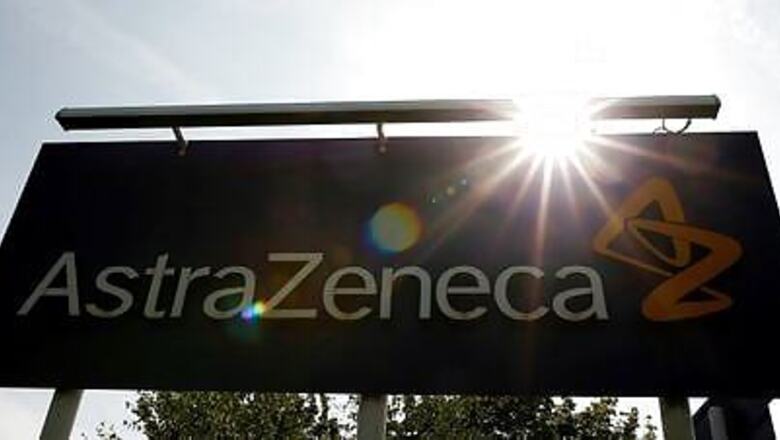
views
BRUSSELS: The European Commission has made a 336 million euros ($396 million) downpayment to British drug maker AstraZeneca to secure at least 300 million doses of its potential COVID-19 vaccine, a spokesman said on Thursday.
The deal covers development, liability and other costs faced by the vaccine maker. The EU has also secured an option to buy 100 million additional doses of the vaccine under development.
The 27 EU states could buy it at a later stage, should the vaccine prove successful.
The overall price they will pay to acquire the doses has not been revealed, but under an earlier deal struck in June with AstraZeneca by Germany, France, Italy and the Netherlands, all members of the EU, AstraZeneca agreed to sell 300 million doses for 750 million euros ($843 million).
The EU deal completed the preliminary accord reached with the drug maker by the four countries, the Commission said in a statement.
“We cannot indicate at this stage the specific pricing per dose. However, a significant part of the overall costs are funded by a contribution from the overall ESI funding for vaccines,” the commission spokesman said, referring to the 336 million euros paid through the bloc’s so-called emergency support instrument.
It is the first contract signed by the EU with a maker of potential COVID-19 vaccines. Brussels was previously said to be in advanced talks with Johnson & Johnson, Sanofi, Moderna and CureVac for their potential vaccines.
EU officials told Reuters in July the bloc was also talking with Pfizer and BionTech for the shot they are developing together.
The contract with AstraZeneca follows an advance purchase agreement signed by Brussels with the company earlier in August.
Part of the money the EU pays for supply deals covers legal risks faced by vaccine makers if their shots have unexpected side effects. These risks are increased by the hastened process to develop a vaccine in the race against the COVID-19 pandemic.
“In order to compensate for such high risks taken by manufacturers, the Advanced Purchase Agreements provide for member states to indemnify the manufacturer for liabilities incurred under certain conditions,” the commission said.
“Liability still remains with the companies,” it added.
This issue has been one of the stumbling blocs in talks with other vaccine makers, official told Reuters, as companies prefer to have a broader shield.
Disclaimer: This post has been auto-published from an agency feed without any modifications to the text and has not been reviewed by an editor




















Comments
0 comment